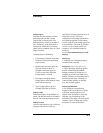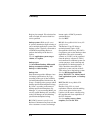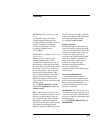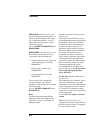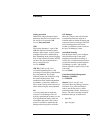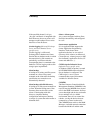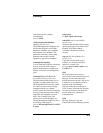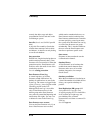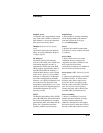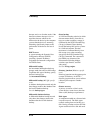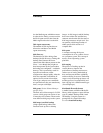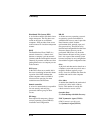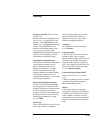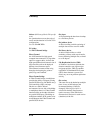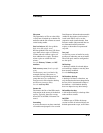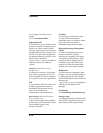
G-11
Glossary
database server
A computer with a large database stored
on it, such as the SAP R/3 or Microsoft
SQL database. A server has a database
that can be accessed by clients.
Dbobject (Informix Server specific
term)
An Informix Server physical database
object. It can be a blobspace, dbspace,
or logical log file.
DC directory
The Detail Catalog (DC) directory
consists of DC binary files, which store
information about file versions. It
represents the DCBF part of the IDB,
which occupies approximately 80% of
the IDB. The default DC directory is
called the dcbf directory and is located
in the <Data_Protector_home>\db40
directory on a Windows Cell Manager
and in the /var/opt/omni/server/db40
directory on a UNIX Cell Manager. You
can create more DC directories and
locate them as appropriate to you. Up to
10 DC directories are supported per cell.
The default maximum size of a DC
directory is 4 GB.
DCBF
The Detail Catalog Binary Files (DCBF)
part of the IDB stores information about
file versions and attributes. It occupies
approximately 80% of the IDB. One DC
binary file is created for each Data
Protector medium used for backup.
delta backup
A delta backup is a backup containing
all the changes made to the database
from the last backup of any type.
See also backup types
device
A physical unit which contains either
just a drive or a more complex unit such
as a library.
device chain
A device chain consists of several
standalone devices configured for
sequential use. When a medium in one
device gets full, the backup
automatically continues on a medium in
the next device in the device chain.
device group (EMC Symmetrix specific
term)
A logical unit representing several EMC
Symmetrix devices. A device cannot
belong to more than a single device
group. All devices in a device group
must be on the same EMC Symmetrix
unit. You can use a device group to
identify and work with a subset of the
available EMC Symmetrix devices.
device streaming
A device is streaming if it can feed
enough data to the medium to keep it
moving forward continuously.
Otherwise, the tape has to be stopped,
the device waits for more data, reverses
the tape a little and resumes to write to



